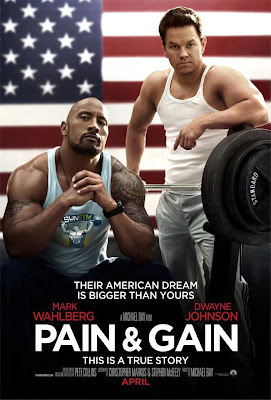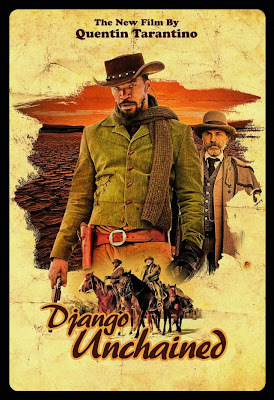Nightcrawler (Movie Review)
Nightcrawler: 5
out of 5
[Note: Orignally posted via WhySoBlu.com for BeyondFest]
Lou
Bloom: Park the car and get your camera!
I find there to be a
lot of beauty in Los Angeles at night.
It is a bit odd, as I find most films that portray LA primarily at night
tend to be centered on crime. Something
about the way this city is illuminated by its street lights, cars, and various
other forms of activity just does something for me. Certain films and filmmakers have proven to
have quite the handle on filming this sort of thing. I think of a director like Michael Mann, who
seems to understand exactly how to shoot LA at night, given what he brought to
films like Heat or Collateral. With Nightcrawler,
a dark, satirical neo-noir, writer/director Dan Gilroy and cinematographer
Robert Elswit seemed to want to do all they could to capture amazing
photography of this city at night. As a
result, we watch a slimy character do all he can to get great footage, while in
turn finding something sublime in how wonderfully shot the whole thing is.
Far removed from the
world of Taxi Driver, the most
notable film to reference with regard to this film, Nightcrawler does not have the grittiest of streets of New York,
with cars and nasty characters emerging from the steam, to work with, nor does
it have the haunting emergence of Bernard Hermann’s score to propel it
along. Instead, Nightcrawler is a slickly-produced feature that still knows how to
keep a focus on the shady characters existing in the world of today (despite
the few identifiers to really establish a particular year), with James Newton
Howard’s score working as a way to keep the viewer excited, as they dive
further down the rabbit hole that is Jake Gyllenhaal’s Louis Bloom character.
Appearing as a man that
never sleeps and works hard to look and act as if he has stretched human skin
over the body of an alien, Gyllenhaal play’s Bloom as a man that is lower than
those in the profession he suddenly has the urge to pursue. Beginning the film as a scavenger selling
stolen material, Bloom witnesses a car crash one night and finds himself less
concerned with the victims involved and more interested in the cameraman
filming the scene (a small, but sleezy performance by Bill Paxton). A few questions later and Bloom has a new
goal: become a freelance cameraman,
focused on crime, in an effort to make quick cash by selling the footage to
news networks. It is far better to just
see the lengths Bloom goes as the film goes on, but Bloom’s character is
certainly something to dive delve deeper into.
This is a man who is a
clear definition of off-putting.
Standing and addressing people properly from a distance, getting to know
Louis Bloom means seeing a man who has a level of determination that would be
admirable if his speech patterns did not seem like the rehearsed lines of
dialogue a used car salesman may use to convince someone of a deal they cannot
afford to miss. This is a man who
clearly apes all of the tutorials he must read again and again to succeed,
despite his shady methods. Bloom has a
level of intensity that is masked by his seemingly unfaltering sense of
optimism around others, even as he eventually reveals powers of intimidation
that may have seemed nonexistent beforehand.
Making matters more complex is considering whether or not Bloom actually
buys into what he finds himself selling.
Is he delusional or does he understand what kind of person he is?
This is Gyllenhaal at
his best. Continuing his streak of
taking on dark and interesting roles (see Enemy
and Prisoners), this film finds him
playing a 70s anti-hero, who could easily be seen as a reviled villain in
another version of this story, but instead comes off as incredibly creepy but
weirdly likable at the same time. Not
that his actions are anything close to moral, but much like Bloom’s footage,
you cannot look away from this man.
Dan Gilroy is certainly
no stranger to filmmaking, given his eclectic writing credits, but his
directorial debut is accomplished in all the right ways. He appears to effortlessly create a haunting
sense of reality in the bounds of what we know is a step too far for the actual
nightcrawlers working this profession, while still imbuing a sense of
excitement and even humor into the proceedings.
Not to reveal too much, but Gilroy’s decision to give Bloom an employee
played by Riz Ahmed (star of another brilliant satire, Four Lions), leads to further understanding of who Bloom is, while
also adding a new dynamic to keep the darkness in play. It allows the audience to sit with a character
that can get right up close to Bloom and wonder about who this weird guy is,
while riding around with him, chasing calls on a police scanner.
Even the scenes based
around a news station provide an absurd level of entertainment, given the
nature of negotiations that take place in order to air the ‘best’ footage
possible. Rene Russo (Gilroy’s wife of
20+ years) plays the station manager, Nina, who is at first taken by Bloom’s
attitude, given the footage he provides, only to become both sickened and in
awe of what he can bring. Nina has
morals nearly as low as Bloom’s, but it is her consideration of how to put
exploitative footage on the air that enhances the over-the-top reality that
this film exists in.
The reality of this
whole film is exaggerated, but is handled in a way that truly works to hammer
home the ideas and make it feel at one with the gritty films of the 70s that
inspired it. Nightcrawler is excellent in nearly every way. Highlighted by a terrific performance from
Jake Gyllenhaal, this is a film with plenty of style and a great handle on
tension in its many forms. It is the
kind of film that can allow for a bombastic car chase to take place and have it
feel completely necessary to what Dan Gilroy wanted to accomplish. That is just one of the many things he is
able to let viewers take in, during this LA noir set mostly at night, in an
outstanding film full of great nocturnal moments.
Lou
Bloom: If you want to win the lottery, you
have to make the money to buy a ticket.












Comments
Post a Comment